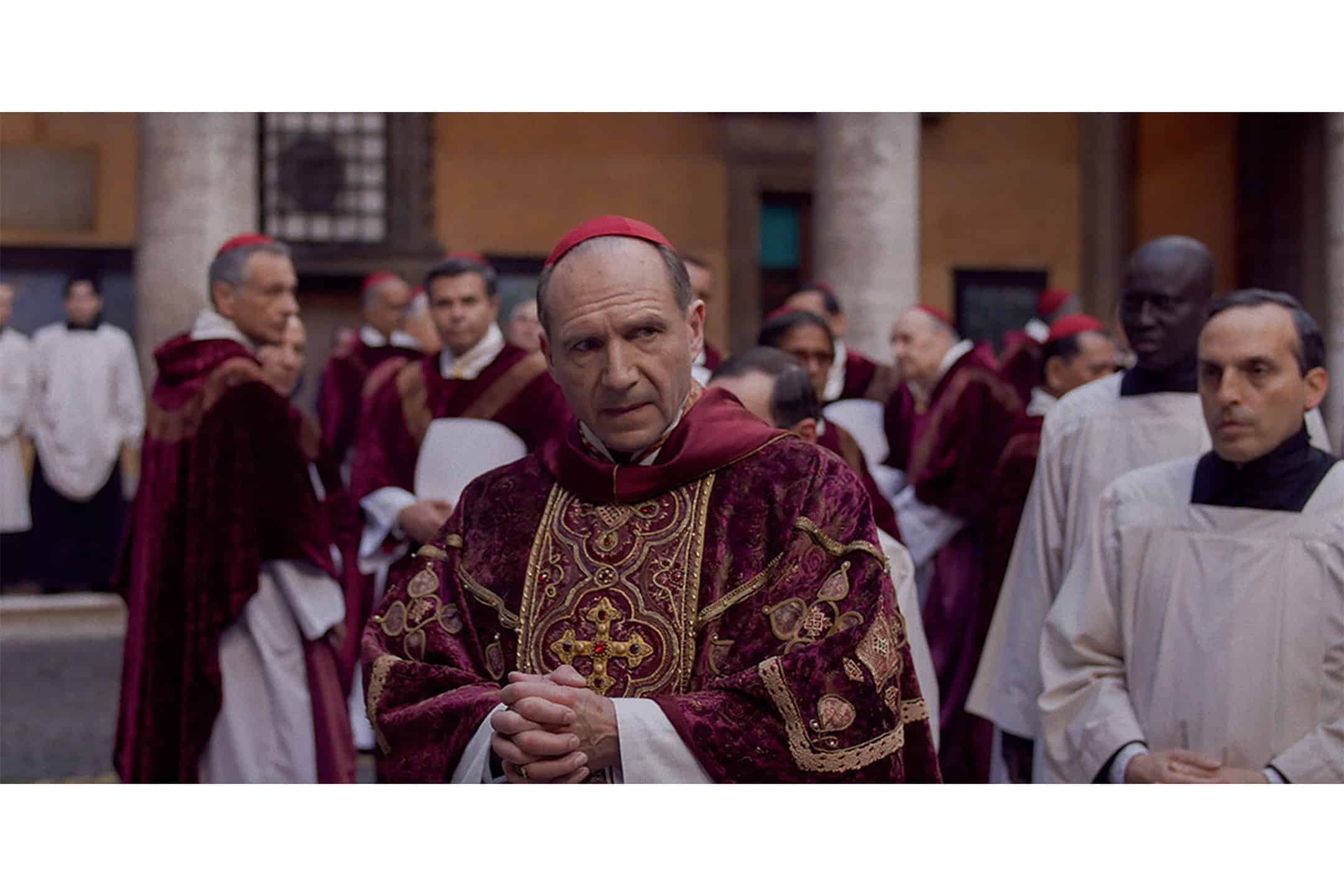Conclave — a subtle and sly political thriller directed by All Quiet on the Western Front’s Edward Berger — explores a what-if scenario where the rigid, traditional Catholic Church faces off with the inevitable force of world-altering change. This film imagines the potential impact on religious conventions when they are confronted with the necessity to adapt in order to survive.
With the pope’s death, the Holy See — the Roman Catholic Church’s government — must elect a new pontiff, and here begins this surprising tale.
We begin with Cardinal Lawrence (Ralph Fiennes), the deceased pope’s trusty right-hand man tasked with leading the papal conclave — a meeting of cardinals from around the world — through the election process. As the candidates float gracefully under Lawrence’s keen gaze between the sacred Sistine Chapel — where the voting takes place — and their chambers inside the hermetically sealed Casa Santa Marta, we are introduced to a cast of intriguing characters, featuring Stanley Tucci, Sergio Castellitto, and John Lithgow. Although summoned for a sacred task, these holy men all harbour their own fleshy ambitions, scandalous secrets, and dark human indecencies.
Lawrence is a man tortured by his conscience, undergoing a crisis of faith — a struggle rendered with brevity and nuance through Fiennes’ quiet graceful performance. From this perspective, Berger effectively highlights the transient nature of belief, political power, and prestige in a society founded upon the edict and appearance of holiness.
This transience is poignantly illustrated through the tragedy of Cardinal Adeyemi (Lucian Msamati), a Black cardinal from Nigeria who is leading the race for the papal throne when a grave secret from his past is revealed; a sexual sin is brought to light. The revelation shatters Adeyemi’s prospects and breaks his heart, while Cardinal Lawrence provides solace despite being the one who exposes him.
Everything revolves around the race for personal power, which is built upon holiness and one’s resemblance to God. Thus, the ideal pope must be as unknowable as God — silent, omniscient, and mysterious.
We observe that men can appear good and worthy so long as their past remains hidden or forgotten. Through Lawrence, Berger reveals the Catholic Church’s human face and ego, suggesting that its sensibilities are not divine, but the imposed will of some guy in a robe. The film suggests that the Catholic Church deserves ‘a pope who sins and asks for forgiveness’ — a pope who doubts — provided that his sin, doubt, and contrition remain concealed.
Among the silenced voices are women, the Sisters, who play a crucial role in breaking the silence in this film. Women come forward to bear witness and reveal truths that tarnish men’s reputations, denying them access to the seat of power. Sister Agnes (Isabella Rossellini) is pivotal in this regard. In honour of the deceased pope, she exposes a dubious conspiracy at the heart of the conclave, triggering chaos. Sister Agnes then retreats back into the shadows, satisfied. As she states, “God has nevertheless given us eyes and ears.”
Throughout this experience, Berger plays with physical space, flooding our minds with images of the Vatican’s vast rooms, tall arches, and men reduced to the size of an ant inside this mighty monument of faith. We glimpse the art inside the Sistine Chapel, where high ceilings are adorned with nude beings posed in struggle or homo-erotic tension. Sculptures of naked torsos are placed beside men engulfed in robes. The Sisters too, behave like sculptures — unmoving and unseeing inside this silent bubble.
There is a clear sense that these men are trying to transcend the physical world in all they do, coupled with the knowledge that transcendence, in this case, comes out of either total suppression or open embracing. Within the film’s context, we are placed at the heart of the papal struggle for the papacy, exploring the competing ideologies of conservatism and liberal Catholic pedagogy: a return to the dark ages versus the welcoming of LGBTQ+ people into the church, and understanding that, in many ways, the church is the sum of men who inhabit it.
By the end of the film, we come to understand that no man is truly worthy, and therefore every man may aspire to the throne — every ‘other’ person is worthy. Berger plays a mean trick here, delivering in the final fifteen minutes a twist so radically sacrilegious that I audibly gasped. Regardless, the tortured strings that ushered us into a stormy beginning have transformed into grand, billowy organ music. We have a new pontiff, and he is good.
We finish with Cardinal Lawrence looking out a window at some women in white, smiling with newfound hope for the church. The film suggests that sometimes, for the centre to hold, it must first be broken. It seems we are nearing a glorious, strange new age of innocence after all.



No comments to display.